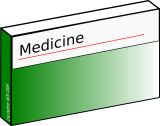
I have worked in the hepatitis C field since 1997, and was chronically infected with the virus for 25 years. During that time, I noticed a tendency in me and others to assume that hepatitis C caused all the symptoms we experienced. During hepatitis C treatment, we are inclined to blame our treatment medications for a myriad of problems we may be occurring. The problem with this is that sometimes we have problems that cause symptoms that are similar to hepatitis C, but are unrelated to it.
For many years, I assumed that the brain fog, muscle aches, and fatigue I had were from hepatitis C. Then I finished nursing school, and entered a peaceful, low-stress phase of life. I slept more, was relaxed, meditated, exercised, and had fun. My hep C symptoms went away. Was this coincidental or did the stress of nursing school cause my problems or worsen my hep C? I decided to observe this. Eventually I got a high-stress nursing job, and my symptoms came back. In short, I learned that for me, stress hurts. I can’t say for sure whether stress was directly harmful, or if stress was harmful because I had hepatitis C. What I do know is that feel better when I take good care of myself.
Let me make one thing clear - hepatitis C symptoms are real, and I seethe when medical professionals dismiss patients’ concerns. These problems are real regardless if someone has mild disease or advanced disease. However, in my case, stress was a huge factor, and continues to be so even now that I am clear of hepatitis C.
Here is another story...In 2003, I started my second hepatitis C treatment, and was using ribavirin for the first time. The day after I started treatment, I got a severe rash on my hands. I thought I was a hotshot Stanford nurse with gobs of experience working with hepatitis C patients, and assumed it was from the ribavirin. I complained about the riba-rash for a week. Finally, a colleague saw the rash and pointed out that I had poison oak. I had been hiking the day after I started treatment, and cleaned burs off my dog, thus the poison oak exposure. I learned three important lessons from this:
- Other medical problems occur during hepatitis C treatment, and they may be unrelated
- I am not a hotshot nurse, nor am I a licensed physician. From that point on, I let my doctor direct my hepatitis C treatment.
- I am not a good trail guide either...
I witness this on the hepatitis C
forums, Facebook, and in other groups. The biggest problem with blaming hepatitis C and its treatments for our symptoms is that it closes the door to proper diagnosis. I have seen people ignore melanoma, sleep apnea, depression, and numerous other fixable medical problems because they assumed they had an unfixable problem.
There is another issue related to this, having to do with the new hepatitis C drugs. People are experiencing all sorts of problems that are not listed in the prescribing information. Since these drugs are new to the public, we are gathering information about them, including adverse events and drug interactions. It is much like how we learn about car problems. When new models are out for a while and used by many, previously unseen problems emerge.
If you have a medical issue that you think is related to hepatitis C, be sure you tell your medical provider. Do this especially if you are undergoing treatment and notice a new symptom. Report potential side effects to the
Food and Drug Administration. When you report potential medication side effects, you will help others who may be going through what you went through.
Keep an open mind about assuming something is related to hepatitis C and its medication. Although it makes sense to connect them, it isn’t necessarily a good idea. And stay out of the poison oak. It looks like this:





7 Comments
7 Comments